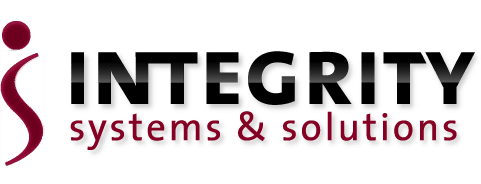
By: Daryl Smith on October 27th, 2022
Taking a Deeper Dive into Practice Management Software
The benefits of practice management software, especially as they relate to scheduling, billing, and targeted report generation, are not a secret.
“To a dentist or doctor, practice management software isn’t anything particularly glamorous—it’s more like a hammer to a nail for a carpenter. It’s really table stakes,” says Jon Northway, co-founder and Senior Technology Consultant at Integrity Systems & Solutions (ISS). “In general terms, we know it increases global practice efficiency.”
But drill down deeper, adds Northway, and you’ll find a range of related advantages that, taken together, work to make it a force multiplier.
Streamlined Marketing
If you think in terms of related and integrated tools, sales and marketing CRM platforms might be the first thing that come to mind.
“There’s just so much it allows your practice to do,” says Northway. “You can automate emails and texting, create an ASAP list that lets patients on your waiting list know when an immediate opening comes up, create automated form fills, request reviews on your website and in social media channels, automate medical alerts and appointments, and more.”
Another key marketing tool is email automation. Unlike some of the more captive communications in a CRM system, automated emails represent a form of direct outreach that allows you to reach patients with news and information beyond appointments and their specific issues. Maybe you have new holiday hours, are offering a whitening special, want to educate your patients on an aspect of self-care, or are bringing on new staff. Automated email allows you to take static information that may be on your website or social media channels and make that part of a “push” message that’s more comprehensive than a brief text might be, as you can cover multiple issues in a single communication vehicle.
More Powerful Communications
An offshoot of CRM—and one that can help supercharge communications—is Voice over IP, or VoIP.
“VoIP isn’t new, but advancements in technology have it working with existing CRM tools to offer more depth than ever before,” explains Northway. “When a patient calls in, their name appears on the phone system’s display screen. In addition, the system allows you to communicate directly via text in real time to confirm appointments. As a linked practice management tool, it supports process, builds consistency, and is functional, simple, and powerful.”
Supporting Your Culture
Here’s a bit of a hidden gem: If you’re running a common communications tool through your practice management software, it can help create consistent communication and bolster your practice’s culture.
“Let’s say, for example, that you have three people at the front desk and they're all managing specific things. They all communicate with patients, and they all have their own sort of ‘flavor,'" Northway says. “While they’re still individuals with their own voices, their communication, in general, will sound and feel similar. They'll still have some facets of unique personality, but the office culture will come through. There will likely be less of the ups and downs of say, someone having a bad day, coming through. It’s almost a level-setting tool that supports consistency in that patients know what to expect when they’re in contact with your office.”
Know Your Patients
Key to providing healthcare and effective practice management is having an in-depth understanding of patients. To that end, between practice management software and CRM, data-gathering tools offer an effective way to get granular regarding patient information.
“Understanding where patients get their information about your practice, where they go to fill out forms and learn about what you offer, and the specific channels they use to interact with you helps make your communication and follow-up more impactful,” Northway states. “From having a clear understanding of what their healthcare issues are and demographics, to being able to reach them on the channels they use most often, data is critical to the productivity of any practice.”
Creating a Better Environment
At the end of the day, all these practice management tools are designed to make life better for your employees.
“You have people taking maybe 50 or more calls a day and working the front desk. Having tools that help automate communication and make it more consistent takes work off their plate, reduces their stress, and gives them more time to serve their patients,” says Northway. “All that translates to better quality delivery of care.”
“The point is that practice management software can be incredibly versatile,” he concludes. “When you’re considering these tools, try to look at them holistically and try to understand the benefits that best fit your practice. We know that our own process with clients involves looking at everything available—and there’s a lot out there—to match the right portfolio of practice management solutions with each business’s needs.”


